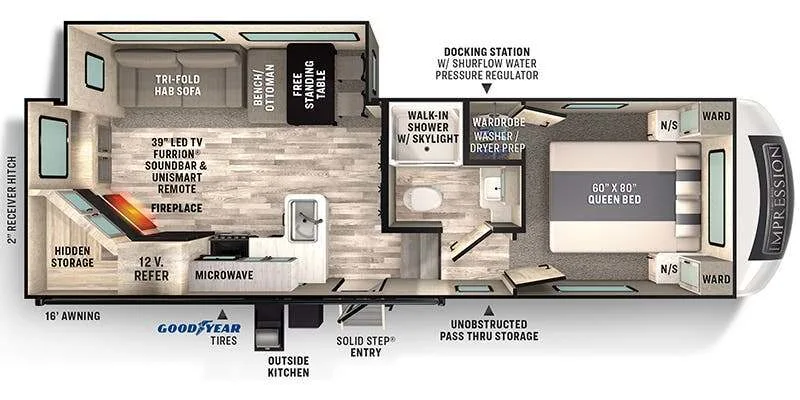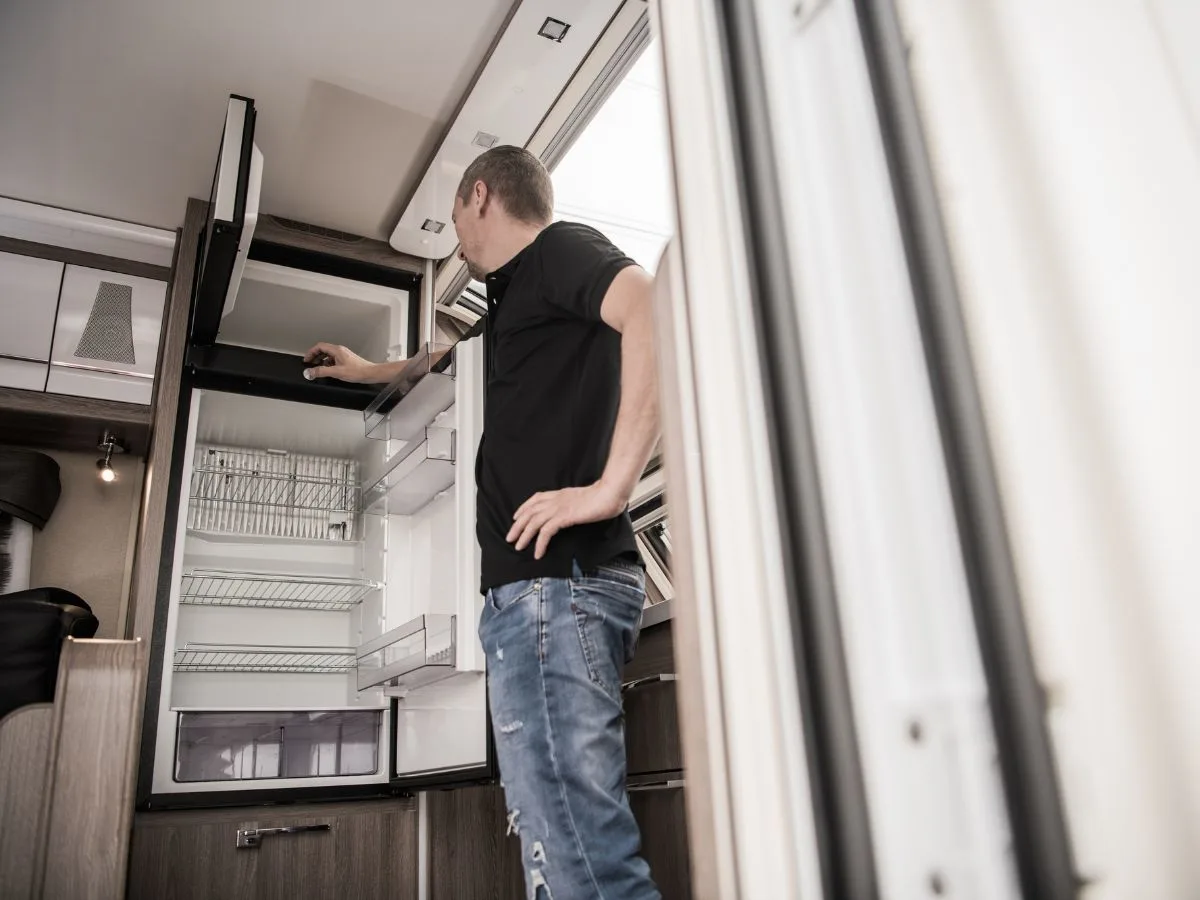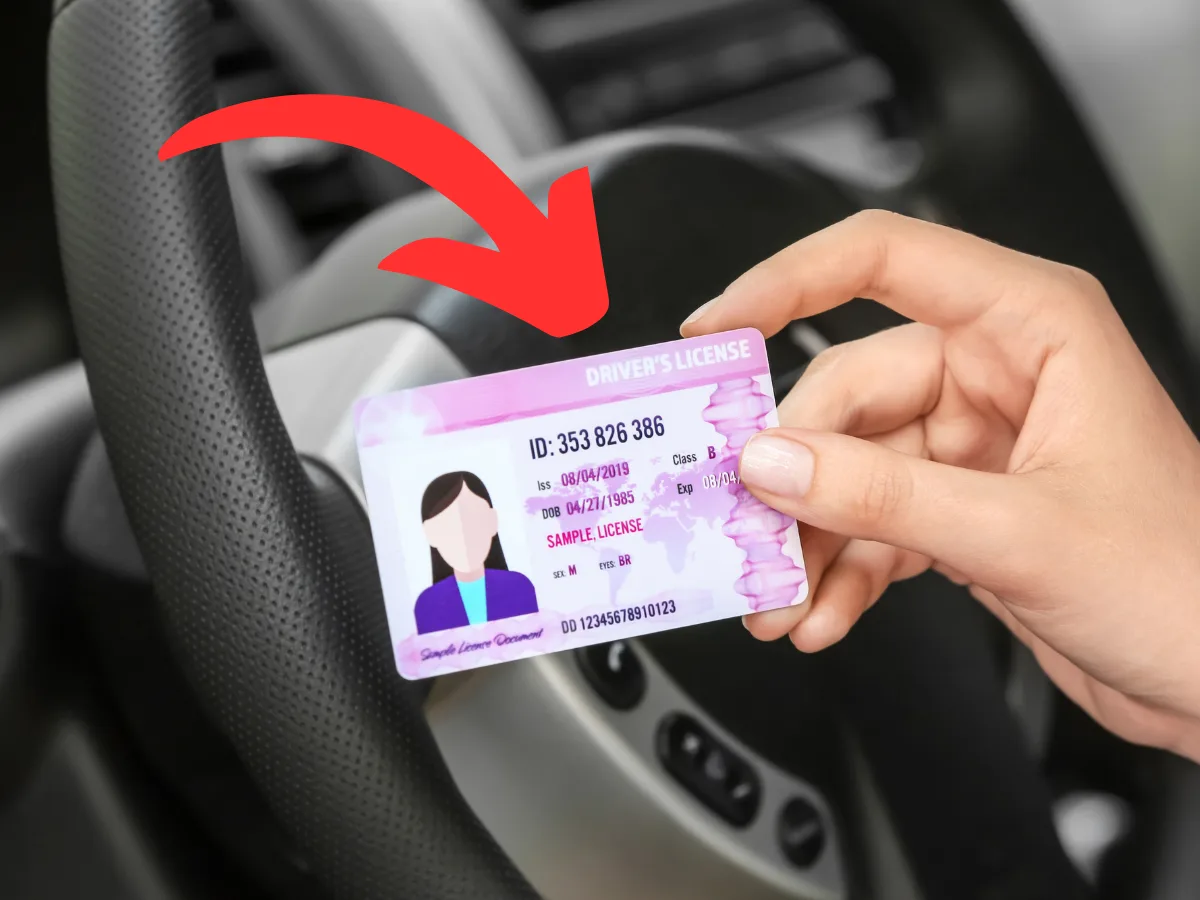I’m not stranger to RV’ing. My wife, kids and I have taken several extensive RV road trips. Great times.
If you’re considering buying an RV, here’s an important list of things you need to know first.
#10: Amenities and Comforts

Consider what amenities are essential for your comfort. RVs can range from basic models with minimal features to luxury trailers with all the comforts of home, including full kitchens, bathrooms, and entertainment systems.
If you’re not one hundred percent sure what you want, a great way to figure it out is to rent different sizes and styles first. I learned so much about what I want in an RV by renting a few.
#9: Storage Capacity
Evaluate the storage options available in the travel trailer. Adequate storage for your gear, food, and personal items will make your travels more organized and enjoyable.
This is a huge consideration. Will you be on the road for months at a time or parked at a campsite for a few days at a time? How much recreational gear and toys will you need to haul along?
#8: Towing Vehicle Compatibility
The last thing you need is to buy a new vehicle because you bought a travel trailer that’s too heavy for your current vehicle.
Ensure your current vehicle is capable of towing the RV you’re interested in. Check the towing capacity of your vehicle against the weight of the trailer to avoid any performance or safety issues.
Seriously, check carefully and be certain.
#7: Seasonality and Insulation
Consider when and where you plan to use your RV. If you plan on traveling in cooler climates or during the off-season, look for an RV with good insulation and heating capabilities.
Likewise, if going where it’s hot, get AC.
#6: Size and Layout
Think about the size and layout that will best suit your needs. Larger trailers offer more space and amenities but can be more challenging to tow and maneuver. Ensure the layout fits your living needs, including sleeping arrangements and living space.
These days there are RVs of every imaginable size and layout. Heck, this site alone showcases hundreds of RV layouts (I’m a floor plan geek). Take care and time in figuring out the ideal size and layout for your.
#5: Budget and Additional Costs
Determine your budget, keeping in mind additional costs such as insurance, maintenance, storage fees, and campground fees. RVs can vary significantly in price, and owning one involves ongoing expenses.
#4: Maintenance Requirements & Recall History

Understand the maintenance that an RV requires. Regular maintenance is crucial for safety and longevity, including tasks like checking tire pressure, sealing roofs, and winterizing the plumbing system.
Also, do some research on quality. Like everything, there are cheap RVs which fall apart and higher quality RVs that will last much longer. The fact is driving rattles RVs a lot and those that are not well made start falling apart fast.
Lastly, before you pull the buying trigger, ask or research about any recalls the RV model may have had over the years and whether there are any outstanding.
#3: Lifestyle Compatibility
Consider how an RV fits into your lifestyle. RVing is a commitment to a particular style of traveling and living—ensure it matches your travel preferences and comfort with close-quarters living.
For instance, if you primarily car camp, will a tent do or do you really want an RV?
Will you really use it enough to warrant the cost? I see plenty of RVs sitting in a driveway that are never used.
#2: Resale Value
Investigate the resale value and the popularity of the model you are considering. Some RVs hold their value better than others, which can be important if you decide to sell or upgrade in the future.
#1: Legal and Registration Requirements

Seems the most important things so often involve red tape and government bureaucracy issues.
Check the legal and registration requirements before buying. Different states have different laws regarding RV registration, insurance, and driver’s licenses. Ensure you comply with all legalities to avoid fines or other legal issues.
